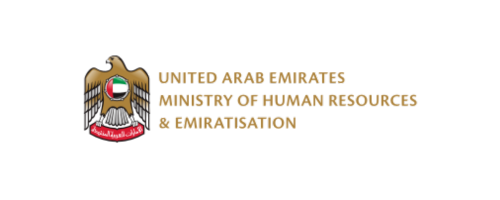RadiantBiz – Business Setup Consultants in Dubai

One-Stop Solution for Business Setup in UAE - RadiantBiz is a leading business setup consultancy in Dubai that helps entrepreneurs
Trusted Audit Firm in Dubai | Best Auditing Services in Dubai
Comprehensive Auditing Services to Ensure the Accuracy and Compliance of your Financial Records
Advantages of Internal Audit Services in Dubai

Enhanced Credibility
Auditing services in Dubai provide an independent verification of financial statements, enhancing the credibility of the organization's financial reporting to stakeholders. This can positively impact relationships with investors, clients, and partners.

Compliance Assurance
Regular audits in Dubai ensure compliance with applicable laws, regulations, and industry standards, helping businesses avoid legal issues and penalties.

Improved Internal Controls
Internal audit services in Dubai assess the effectiveness of internal controls, identifying weaknesses and recommending improvements to enhance operational efficiency and reduce the risk of fraud.

Risk Identification
Audit services help organizations identify potential risks and vulnerabilities, allowing them to implement measures to mitigate these risks effectively.

Informed Decision-Making
An audit firm in Dubai provides valuable insights into financial performance and operational efficiency, aiding management in making informed decisions that drive business growth.

Fraud Prevention
Regular internal audit services in Dubai can deter fraudulent activities by enhancing oversight and accountability, as well as identifying any discrepancies in financial reporting.

Resource Optimization
Auditors evaluate the efficiency of business processes, providing recommendations that can lead to cost savings and better resource allocation.

Tax Compliance
Auditing services in Dubai ensure that tax obligations are met accurately, minimizing the risk of disputes with tax authorities and potential penalties.
Audit Services in Dubai
Auditing services in Dubai play a critical role in ensuring transparency, accountability, and regulatory compliance for businesses. Many companies operating in the mainland and free zones must undergo annual external audits.
External auditors, independent of the company, review financial statements for accuracy and adherence to International Financial Reporting Standards (IFRS). These audited financial statements are essential for trade license renewals and serve as proof of a company’s financial integrity.
In addition to external audits, internal audit services in Dubai help assess a company’s internal processes, risk management systems, and governance. Although not legally required, internal audits are invaluable in identifying weaknesses, improving operational efficiency, and mitigating potential risks.
By utilizing audit firms in Dubai, businesses can safeguard against financial mismanagement and enhance their operational foundations. Compliance audits are necessary to ensure that businesses meet local regulatory requirements such as VAT laws and Anti-Money Laundering (AML) regulations.
These audits are especially vital in industries with strict regulations, including finance and real estate. Forensic audits are conducted when there is suspicion of fraud or financial irregularities, often initiated by either internal or external stakeholders.
The UAE’s legal framework for auditing is established under the UAE Commercial Companies Law (Federal Law No. 2 of 2015) and supplemented by specific regulations for businesses in free zones.
Companies in free zones like JAFZA, DMCC, and others must follow zone-specific auditing rules, which often require audited financial statements for license renewals. The audit thresholds may vary across free zones depending on their individual requirements.
Overall, auditing services in Dubai ensure financial transparency, boost investor confidence, and guarantee compliance with local regulations, making them essential for businesses operating in the UAE.
Who Needs Auditing Services in Dubai?
| Business Structure | Audit Requirement |
|---|---|
| Public Companies | Mandatory annual audits for listed companies. Ensures transparency and compliance with regulatory standards (UAE SCA). |
| Private Companies | Larger private firms may require audits based on revenue or asset thresholds. Essential for businesses seeking financing. |
| Free Zone Companies | Many free zones require annual audited financial statements for licensing. Audits may be necessary for license renewals. |
| Limited Liability Companies (LLCs) | Audits are based on the size and stipulations of shareholders. Common for those with substantial financial activities. |
| Non-Profit Organizations | Subject to audits to ensure compliance with laws and regulations governing operations. |
| Companies in Regulated Industries | Regular audits are required for businesses in finance, healthcare, and insurance. Protects stakeholders and ensures compliance. |
| Joint Ventures and Partnerships | Audit requirements may be stipulated in partnership agreements to maintain transparency. |
| Companies with Foreign Investment | Regulatory oversight may necessitate audits for compliance with local laws. |
Auditing Services in Dubai

Financial Audit

Internal Audit

External Audit

Risk Management Audit

Compliance Audit

Tax Audit

Forensic Audit

Fraud Audit

Value for Money Audit
Audit Firm in Dubai Processes
Timeline: 6 to 8 weeks
Step 01 - Takes 1 week
Planning
The auditor and client discuss the auditing objectives, scope, and timeline, gathering initial information about the client’s operations, and ensuring a clear understanding of the business.
Step 01 - Takes 1 week
Planning
The auditor and client discuss the auditing objectives, scope, and timeline, gathering initial information about the client’s operations, and ensuring a clear understanding of the business.
Step 02 - Takes 1 week
Risk Assessment
The auditor identifies high-risk areas and potential issues that might affect the accuracy of financial statements, based on the risk assessment, the auditor tailors the audit approach.
Step 03 - Takes 1 to 2 weeks
Internal Control Review
The auditor evaluates the company's internal controls to identify any weaknesses that could affect financial reporting or compliance, helping to determine the level of testing required during the fieldwork.
Step 04 - Takes 2 to 3 weeks
Fieldwork (Data Collection)
The auditor collects financial records, transaction details, and supporting documents from the company. This is the most intensive part of the audit, where data and evidence are gathered for verification.
Step 05 - Takes 1 to 2 weeks
Testing and Verification
The auditor performs tests on financial statements and transactions to verify the accuracy of the data, ensuring that records are properly documented and comply with accounting standards.
Step 07 - Takes 1 week
Reporting
The auditor prepares a detailed audit report outlining findings, conclusions, and recommendations for improvements, the report is shared with the company's management.
Step 08 - Takes 1 week
Management Response
The company’s management reviews the audit report and responds to the recommendations, detailing any corrective actions they plan to take.
Step 09 - Depends on the findings
Follow-up (if necessary)
In some cases, a follow-up audit may be required to ensure that the corrective actions have been implemented and that any issues identified in the initial audit have been resolved.
Step 08 - End of audit cycle (Week 6 to 8)
Finalization
Once all findings and management responses have been addressed, the audit is finalized, and the auditor provides the client with an official audit opinion, concluding the process.























Documents Required for Audit Services in Dubai
| Document | Description |
|---|---|
| Business License | Valid business license copy. |
| Tax Certificate | Evidence of government acknowledgment (if applicable). |
| Financial Statements | Audited financial statements for the last year. |
| Tax Returns | Copies of previously filed tax returns. |
| Ownership Documents | ID and passport copies of shareholders and directors. |
| Contracts | Relevant contracts impacting tax liabilities. |
| Bank Statements | Bank statements for the financial year. |
| Expense Records | Invoices and receipts for business expenses. |
| Governance Documents | Board resolutions and meeting minutes. |